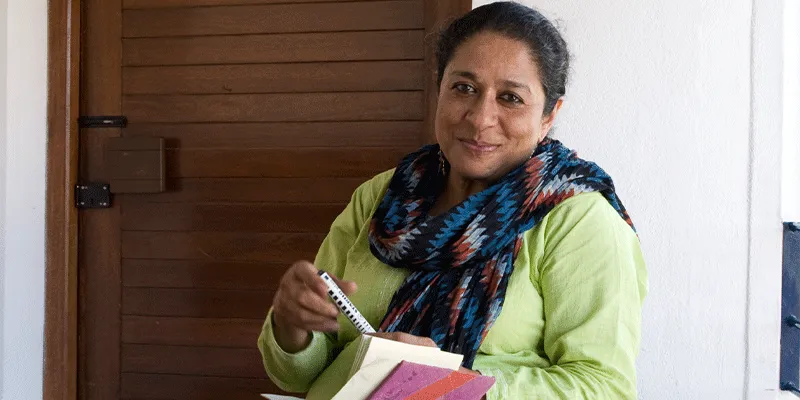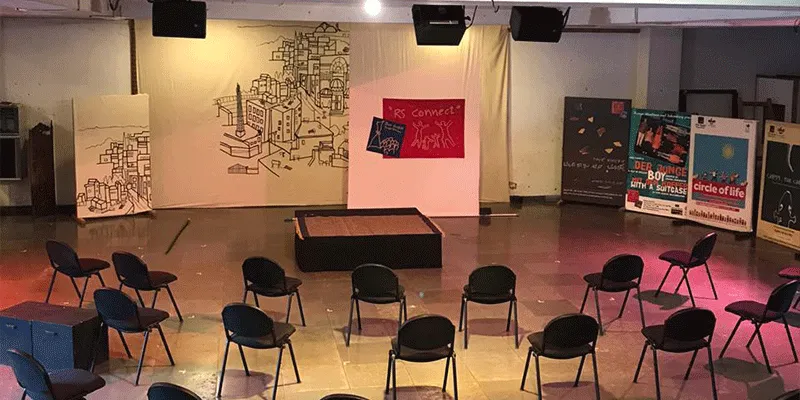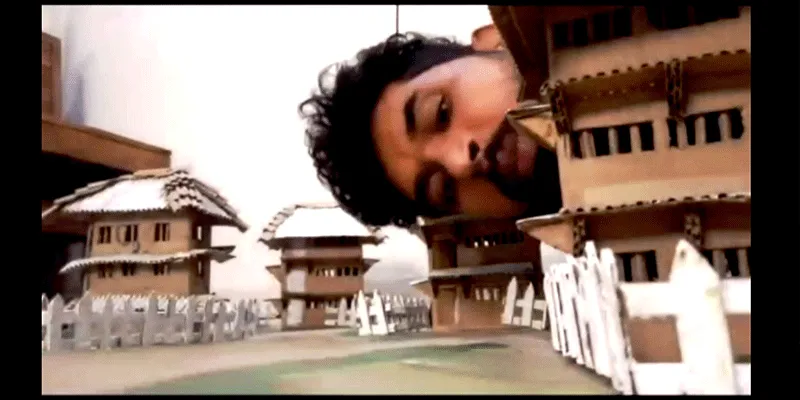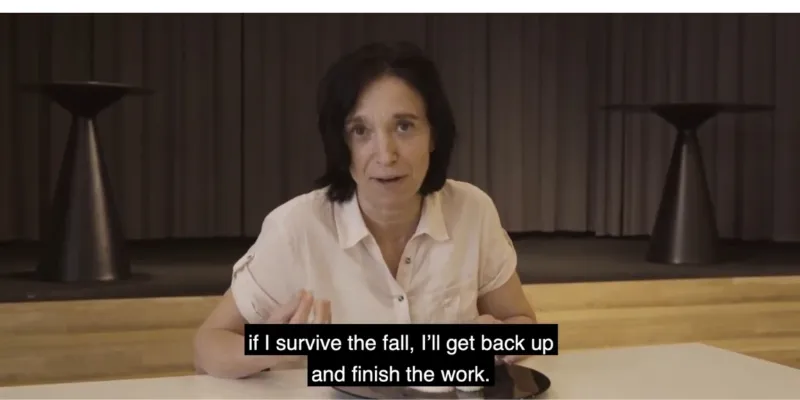The Ranga Shankara Festival goes online: Arundhati Nag on the new hybrid of the theatre fest
Theatre professional Arundhati Nag talks about the Ranga Shankara theatre festival, which will be launched on October 27 in a digital format. Here’s a curtain-raiser on the event
The show has to go on, says Arundhati Nag, theatre professional and managing trustee and artistic advisor of the non-profit Sanket Trust, which runs Ranga Shankara, as she gets set to launch the digital version of the annual theatre festival, to be held from October 27 to November 1.
This year, it will be a combination of events, some scheduled to be held at the foyer at Ranga Shankara, while other screenings will happen online.
“We’re calling this year’s Ranga Shankara Theatre Festival a hybrid, born out of extraordinary circumstances,” she adds. The festival was instituted on November 9, 2014, to commemorate actor Shankar Nag’s 60th birthday, each year.
On the last day of the festival, the Shankar Nag Award is presented to a young theatre maker who embodies service to the art and craft of theatre.

Arundhati Nag
In an interaction with YSWeekender, Arundhati Nag talks about the new format of the festival and gives us a sneak peek into what we can expect and how you can participate in this iconic event this year.
Edited excerpts from the interview:
YS Weekender (YSW): Can you tell us about the Ranga Shankara festival this year, and why you are calling it a ‘hybrid’?
Arundhati Nag (AN): The Ranga Shankara Theatre Festival is held every year and welcomes people to partake of excellent work, play after play, and has always been a physical experience.
This year, however, given that we are living in a pandemic world, we are going online for the first time ever! The reason we are calling it hybrid is because while the festival will predominantly be experienced and enjoyed online, we will also have screenings, presentations, installations, and other small (what we call ancillary) events at the Ranga Shankara foyer.
We will only have about 25 people at the theatre foyer because of the restrictions.

There will be changes in the seating plans at Rangashankara this year
YSW: How will it be different from the previous years? How will you manage social distancing and protective measures at the venue?
AN: A digital festival is a huge first for Ranga Shankara, both for us as organisers as well as our audiences. The difference will not just be in the physical versus online sense for theatre lovers. It is going to be a whole new experience to have the theatre come to their living rooms, in the absence of the physical stage. For the limited numbers that will be welcomed at the Ranga Shankara foyer, we will ensure that all safety measures are taken every day.
There will be temperature checks at the entrance, contact details being collected, maintaining social distancing in seating, compulsory masks for audience and staff of RS, sanitiser bottles will be placed at different points around the venue – we will take every precaution.
Our audiences’ well-being is non-negotiable. After all, what is Ranga Shankara minus its artists and audiences?
YSW: Can you tell us in detail about some of the events that are planned this time - like webcasts, installations, films, podcasts, food, and interactive events at the venue?
AN: There will be screenings of six selected plays in the foyer for a limited audience.
These are works of theatre makers who have won the Shankar Nag Theatre Award from the last six years. The same plays will also be streamed for audiences through an online platform for six days, so theatre lovers can watch it all, without missing any of it, as they have done for so many years.

A scene from the play, The Color of Loss
At the venue, we have lined up exciting ancillaries such as screening of films made during the lockdown (in association with TheatreFilmTheatre and Oddbird Theatre), prop museums (props installed around the venue) which pays tribute to an important prop that defines each play and talks about that prop’s significance, curated dishes in our RS Cafe by Anju (we’re making sure that these dishes are related to the awardees, such as their favourite childhood dishes, dishes that hold memories, etc), and audio-visual showcases.
The highlight is the ‘RS Walk’ with our former artistic director S Surendranath, who will take audiences through the nooks and crannies of RS, dusting off the years and shining the stories that makes this space so unique and loved.

Poster of Teelapur ka Rakshasha
YSW: Who are the award-winning theatre artists who will be featuring their work?
AN: We are thrilled at the line up and this unexpected chance to showcase all their work during one festival. Each one is truly path breaking and so well-deserving of winning the Shankar Nag Theatre Award.
Abhishek Majumdar (2014) - Salt (Kannada, Hindi, Gujarati, English)
Mohit Takalkar (2015) – The Color of Loss (English)
Quasar Thakore Padamsee (2016) – Lunch Girls (English)
Anurupa Roy (2017) – Teelapur ka Rakshasha (Hindi)
Toral Shah (2018) – Production Managers Round Table
Sankar Venkateswaran (2019) – Criminal Tribes Act
YSW: What are the criteria of choosing the award winners each time?
AN: Shankar Nag was the ideal ‘rangakarmi’. He could direct, act, write, and, most of all, gather people around him to dream with him. Six years ago, when we decided that Ranga Shankara had done considerably good work to be worthy of instituting an award in his name, we started the Shankar Nag Theatre Award.
So, on the last day of the Ranga Shankara Theatre Festival, the Shankar Nag Theatre Award is given to a young theatre person, someone with a unique body of work and great promise, with a vision to serve the arts – all characteristics that Shankar embodied.

A scene from 'Salt'
YSW: How has the festival evolved over the years?
AN: What began as a 45-day festival, with the participation of all prominent Kannada troupes and important theatre troupes from all over the country and over 1,000 artistes celebrating this new home for theatre, the Ranga Shankara Theatre Festival has gone on to become a festival that showcases fine theatre under an overarching theme. We are now on our 17th festival.
Change and evolution is part and parcel of life – but the beauty of theatre and art is that while nothing stays constant, everything stays the same.
YSW: What kind of audiences come for an event like this and who do you expect this time?
AN: Because we are the most affordable theatre, with a ticket costing only Rs 200 even in our 16th year, we have audiences who are students, bank clerks, rickshaw drivers, and waiters at the nearby Kamat (that serves the most delicious idlis!).
These folks save up money to come and watch a play showcased at our festival, because they won’t get to see these plays otherwise. Theatre is an experience that attracts people from all walks of life.
There are those that are hard core theatre lovers, those that fall in love with it when they come for the first time, those that discover it a new way each time – the list is endless. This time, we will welcome people who want to come to our physical space and enjoy the ancillary events and screenings, and because the pandemic has forced us to go online, we will welcome so many more people online, from across India and the globe.
YSW: You have been in theatre and the movies? What is special about theatre for you personally?
AN: Theatre is the real thing! The actor is the king in theatre. A lot of blood, sweat, and tears goes into both the rehearsal and the performance, and the audiences, if they are lucky enough, get to watch this!
(Image credits: Rangashankara)
Edited by Megha Reddy









